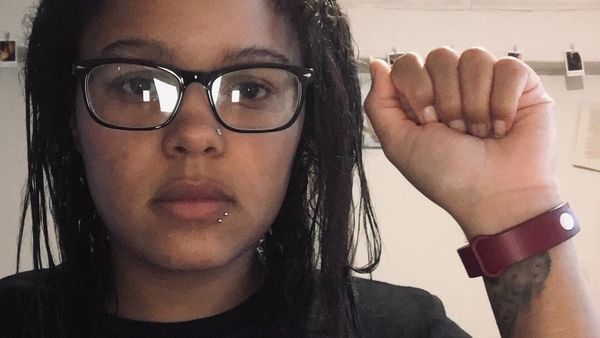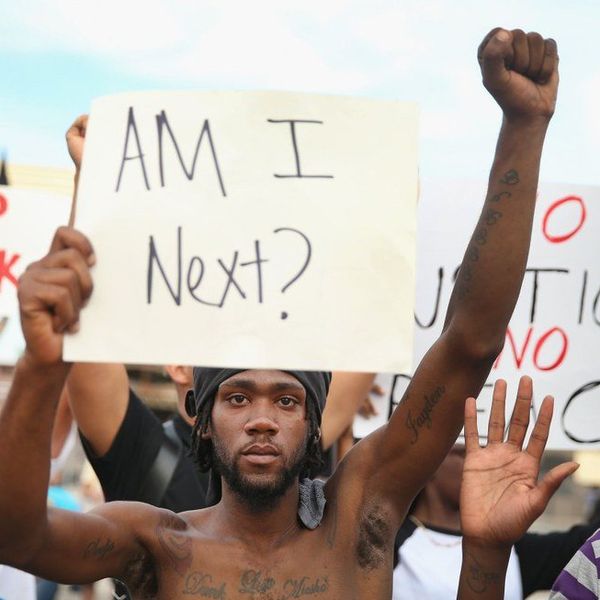I don’t know where to begin.
My head is swimming, more accurately drowning, in a thousand different thoughts, anxieties, and feelings of despair caused by recent events; namely the senseless murders of Alton Sterling and Philando Castile, and the equally senseless, vengeful, killings of 5 Dallas police officers. Issues of race, equality, police brutality, gun control, and privilege are at the forefront of national discussions as America is, once again, forced to address the problems that have plagued the country since its conception. In such times, the emotional aspects of such injustices can overtake sound judgment and reason, as productive action is overshadowed by reactionary violence and detrimental escalations. However, education and knowledge about these issues needs to be prioritized in an effort to genuinely enact lasting change.
Education about racism and privilege
Despite the fact that segregation and the civil rights movement are taught as ancient history in textbooks and classrooms around the country, the chilling reality is that just over 50 years ago, segregation was a common, accepted facet of American culture. Generations of living Americans grew up in a time in which blatant racism was not condemned, but rather justified. Despite the fact that the fight for equality has made tremendous gains, it is foolish to hope that a mere 52 years after the Civil Rights Act of 1964 and Brown vs. Board of Education ruling, which outlawed racial discrimination and segregation, America would be free from the consequences of its horrific past. Racism is alive and well.
Consequently, white privilege is an undeniable aspect of American culture. Due to racism, overt, subconscious, or systematic, those of Caucasian decent are benefited politically, societally, and socially, whether or not they are even aware. As a white female, I rarely think about my race. I have never feared a police officer, nor the trigger-happy reactions of my neighbors when it’s late at night and I’m being too loud. I do not have stereotypes, profiles and judgments rained down upon me due to the color of my skin. I have never concerned myself over the opportunities I might be denied because of an unmalleable aspect of my being. My privilege extends to areas I’m not even aware of. And that’s exactly what privilege is. It’s the conveniences that the majority takes for granted, and minorities long for. Privilege and racism are often subtle, not just a white man dressed in a hood throwing slurs around.
Systematic racism, though not deliberate, is a harsh reality of our country. The wealth and employment gaps that minorities are subjected to creates a vicious cycle from which breaking out is no small task. Low income areas fail to provide the same educational opportunities for students, who are subsequently not given the same job opportunities as their peers in more affluent areas. The obstacles facing these children are often so insurmountable that they take the low income jobs, similar to those their parents had, and a cycle is born. Though the “system” has indisputably been beat before, we often hear about these amazing tales of triumph simply because they are so incredible, and so rare. The crime rates that plague low income areas are often the result of this same problem. Children are born into a world of crime or gangs and that is all they ever know. The nature of systematic racism is not intentional, yet its by products require intentional effort to overcome. Racism needs to be critically discussed, and acknowledged in full if we can hope to ever even begin to address its causes.
Education about the media
Perhaps the largest perpetrator of stereotypes, fear, and incidental racism is the media. In America, the media shapes world views and perceptions, as specific ideologies, issues and injustices are disproportionately covered. As a journalism student at one of the most prestigious universities in the country, I have grown critical, and frankly cynical, of the American media. We live in a nation in which sources we trust for news and information feed the aforementioned epidemics of racism and privilege. Skeptical? White rapists like Brock Turner are portrayed as successful athletes, with swimming times and smiling photographs gracing news reports. Black men like Brian Banks, who was wrongfully convicted of rape, are viewed as undeniably troubled teens, and their many accomplishments, like his promising football career, shadowed and ignored. The luxury of favorable reporting is denied, not just to minority criminals, but often to the very men America watched die at the hands of a police officer. Biased news networks forsake objectivity in favor of monetized agendas. They frequently enforce racial profiling and stereotypes, often failing to hold white criminals entirely responsible for their actions and criminalizing even victims of color.
With that being said, the media is contributing to the existent racial tensions it helped create by artificially heightening race’s relation to police brutality. According to the Washington Post, in 2015, 50% of the victims of fatal police shootings were white, while 26% were black. With 62% of the overall population being white and only 12% being black, these numbers could appear to be the result of the racist police behavior the media has proposed. However, according to the Bureau of Justice Statistics, whites are responsible for a proportionate 60.1% of all violent crimes, while blacks make up a significantly larger proportion; 36.9%, of violent crimes. The most disproportionate crime being murder, of which 49.6% are committed by black men. The media is proposing the idea that the police are actively engaged in racist practices, however, the proportion of deaths correspond to the proportion of crime committed by each race.
Statistics alone are difficult to analyze and understand, and the reality is, the media is selecting to show only those which confirm their reports. My plea is that statistics thrown about in the quest for justice, like young black men being 9 times more likely than any other people group to be killed by police, be contextualized and assessed. There is no question that there have been police officers guilty of excessive force, but, at the expense of ignorance, these numbers cannot be so flippantly tossed about and manipulated so to prove a point.
Education about responsibility
The events that took place in Dallas, in which 5 innocent police officers were coldly murdered, are an unfathomable tragedy. The vengeful behavior of the assassin, by his own admission against all white people and all police, is ill-placed and demonstrative of an incredible misunderstanding about the nature of responsibility and blame. Every state, every city, every neighborhood, and every occupation, is subject to racists. Cruelty, evil, and violence are despicable diseases racking our society. The police force is not exempt to corrupt individuals. But, it is just that. Individuals. The police are not racist, evil, nor inherently violent. Police officers serve and protect the masses on a daily basis, risking their own lives for the sake of complete strangers, never knowing whether a typical day at work will be their last. They should be respected. The police as a whole should not be, and are not, responsible for the reckless, thoughtless, heinous actions of the few officers who have callously murdered civilians. Each and every police officer is responsible for their actions, and their actions alone.
By the same token, the actions of a few violent individuals cannot be attributed to entire movements. All too often, peaceful protests and demonstrations are subverted by violence and death. Laws are broken by a few, and movements with pure intentions, like Black Lives Matter, are demonized and viewed as unruly and anarchist.
Education about ethics
The drastic issues that have manifested themselves in forms of incredible violence are ultimately symbolic of deeper societal issues. Chiefly, there is a lack of respect rampant amongst Americans. There is a lack of respect for the police, and authority in general, that is bred in children from a young age. This distaste is admittedly fueled by those few police officers who themselves lack respect--respect for human life and those individuals they swore to protect. Individuals then resist arrest and instigate conflict when dealing with the police they view as militarized and oppressive. In turn, officers grow increasingly forceful and the vicious cycle America is in the midst of is born. Human life is not a chance, haphazard, meaningless occurrence. We need to respect each other and respect human life. A sense of basic human decency is tragically absent in those that resort to violence.
In turn, we need to be educated about the effectiveness, or lack thereof, of violence. History has proven, on large and small scales, that governments, institutions, and individual people do not respond positively to violence. Peace, compassion, and love need to be values of utmost importance that we teach our children, that we demand of ourselves. We need to care for those around us, their well being, their safety, and their health. Taking one life in exchange for another is not justice. And the worth of a life is not determined by the color of someone’s skin.
The variances among us, gender, ethnicity, race, and anything else, are what creates change, unique thought, and progress. Each and every life matters, and is of equal importance. However, a common analogy asserts that much like the fire department puts water on only the house burning rather than dousing the entire neighborhood, despite the fact that all houses matter, we need to pay attention to those with an increased need. Movements like Black Lives Matter are completely valid, and sympathizing with such sentiments does not disqualify you from believing that all lives matter. In a time of mass problem and chaos, though, there needs to be a focus for change to ever begin.
Martin Luther King Jr. once said, “education without social action is a one-sided value because it has no true power potential.” Knowledge of the problem is the first step to the solution, but it demands a response.





















